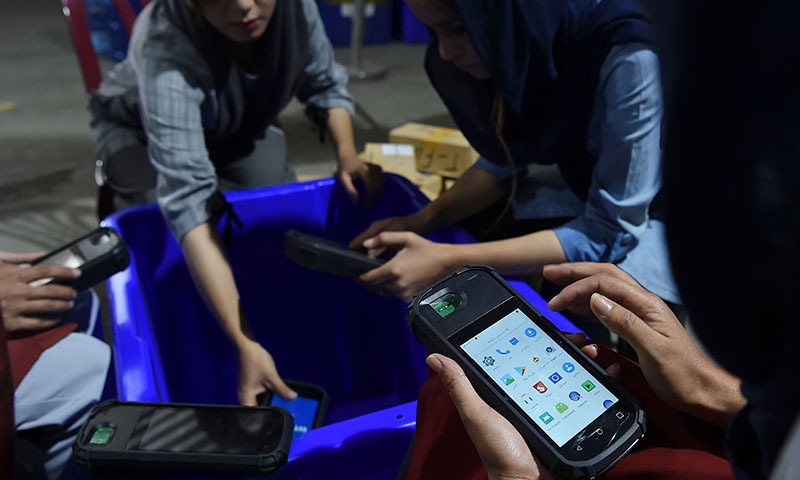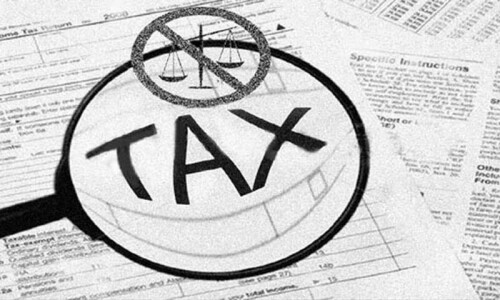SAFETY of life and limb in upcoming Afghanistan’s presidential elections will be the uppermost concern for the candidates and political parties in the run-up to the elections, scheduled for Sept 28. Afghans are hopeful that the elections would lead to the second peaceful transfer of power in their history.
Among the 18 candidates in the field, the most prominent are Ashraf Ghani, the incumbent, Chief Executive Abdullah Abdullah, and Hanif Atmar, a former national security adviser.
All parties and candidates are looking forward to the elections, but the deadlock between Washington and Taliban at Doha has put the process under a cloud. Some candidates have called for a postponement of the presidential elections. Humayun Jarir, a member of Hezb-i Islami, said: “The peace process is in its crucial stage. If there are indications that the path to peace is near, we prefer to have peace first and then hold elections in a peaceful environment.”
Prominent candidates, parties
Dawlat-sazan, a party commanded by President Muhammad Ashraf Ghani, a Pakhtun from Logar province. He has previously worked as an adviser to former president Hamid Karzai for the duration of his provisional government, as finance minister and as chancellor of Kabul University. Ghani was a contestant in the 2009 presidential elections and came fourth. He was selected by Karzai to lead the Transition Coordination Commission.
His first and second running-mates are: Amrullah Saleh, a Tajik from Panjshir and a former Jamiati who has dissociated himself from the party, and Sarwar Danesh, a Hazara from Daikundi. Saleh now heads the Green Trend of Afghanistan.
Danesh served as the first governor of Daikundi and later as justice minister and also as higher education minister under Hamid Karzai. Danesh was a member of the commission which drafted the country’s constitution in 2003. It is significant that Ghani has chosen a third, informal running-mate as well. He is Muhammad Yusef Ghazanfar, an Uzbek and ex-MP from Balkh. Ghazanfar is the brother of Husn Banu, a former minister for women’s affairs. This choice was made with an eye on the votes of the Uzbek ethnic group, the fourth-largest ethnic stock in the country.
Subat wa Hamgerayi, headed by Dr Abdullah Abdullah, the present chief executive and a leader of the Jamiat-i-Islami. This is the third time that Abdullah is running for the presidential slot. Abdullah ignored an advice by leaders of his party not to contest this time. His choice for first and second vice presidents are Dr Enayatullah Babur Farahmand, an Uzbek from Jawzjan, and Asadullah Sadati, a Hazara MP from Daikundi.
The leadership council of Jamiat-i-Islami has decided to form an electoral alliance with Jombesh-i-Melli Islami, headed by Abdul Rashid Dostum, and Wahdat-i-Islami, headed by Karim Khalili, a former vice president who now heads the country’s High Peace Council. But a number of Jamiat leaders have declared their support for Hanif Atmar’s Peace and Moderation election ticket. Qanuni is his first running mate.
There is also a third Jamiat-dominated ticket, that of Ahmad Wali Masood. He is the younger brother of Ahmad Shah Masood, the storied anti-Soviet fighter who was murdered by Al Qaeda two days before the Sept 11, 2001, attacks on US soil. The 54-year-old Wali Masood, an ethnic Tajik, has selected Farida Mohmand, a Pakhtun and ex-minister for higher education, and Latif Nazari, a Hazara.
Solh wa Adalat-i Islami is the party of Gulbuddin Hekmatyar, a Pakhtun from Kunduz who headed the Hezb-i-Islami during the pre-Sept 11 era. His first and second choices for vice president are Dr Fazl ul-Hadi Wazin, a Tajik from Parwan, and Mufti Hafiz ul-Rahman Naqi, a Tajik from Badakhshan. Mr Wazin was once lecturer at Islamabad’s International Islamic University.
Ex-general Nur ul-Haq Ulumi, a Pakhtun, is an interior minister. As a general in the Afghan army, he was a key figure in the 1980s. His running mates are Bashir Bezhan, an ethnic Tajik who is a media person, and Mohammad Naim Ghayur, a former intelligence officer from the western city of Herat.
Amniyat wa Adalat group, headed by Rahmatullah Nabil, a Pakhtun from Maidan Wardak. He worked as the head of President’s Protection Service (PPS) in the presidential palace under Hamid Karzai and then as chief of NDS from July 2010 to late 2015. He is a founding member of Mehwar-i Mardom-i Afghanistan coalition. His first and second nominees are Murad Ali Murad, a Hazara from Ghor province, who commanded the Kabul garrison until early this year.
Dr Massuda Jalal, a Tajik from Badakhshan, who was a presidential candidate in 2004. She then served as women’s affairs minister from Oct 2004 to July 2006. She was an aspirant in last year’s parliamentary elections from Kabul, but was defeated.
Published in Dawn, September 20th, 2019
















































